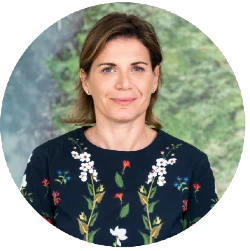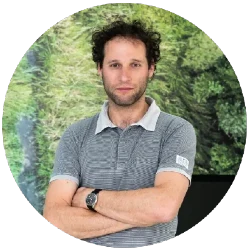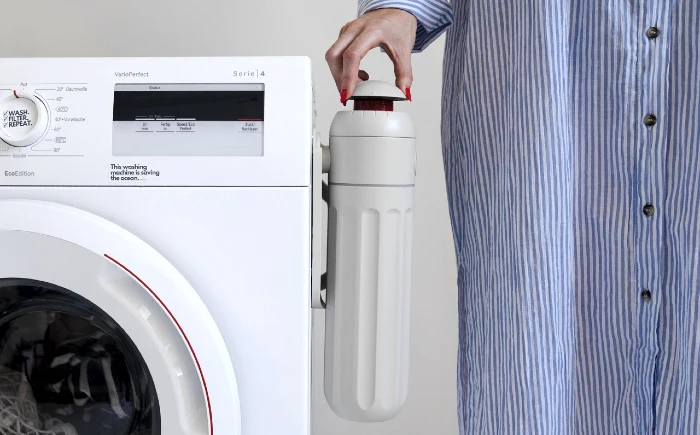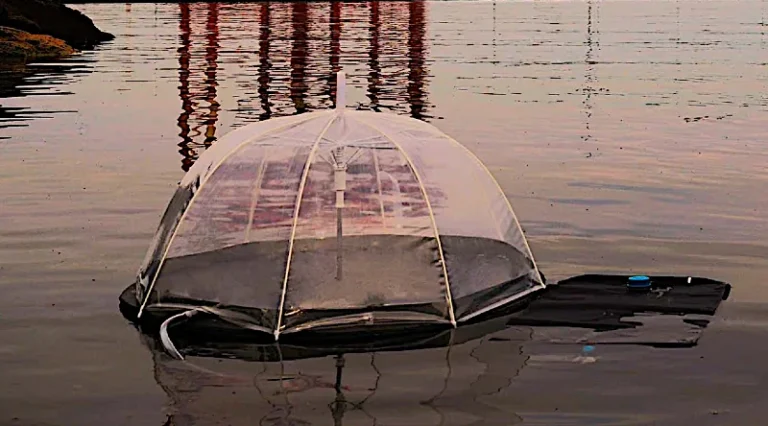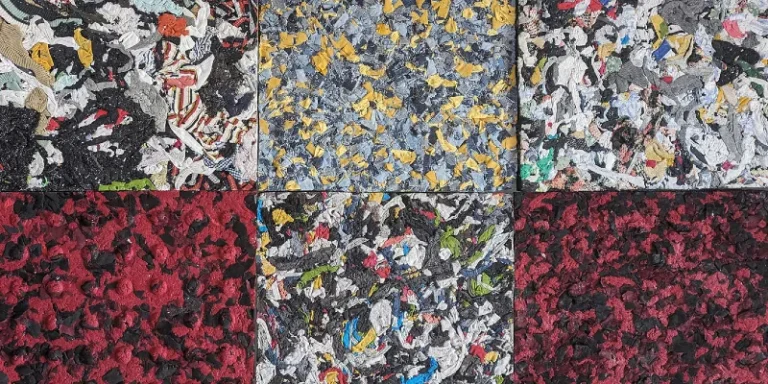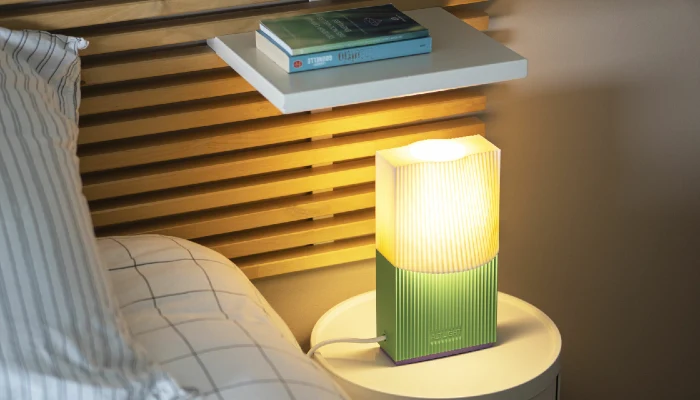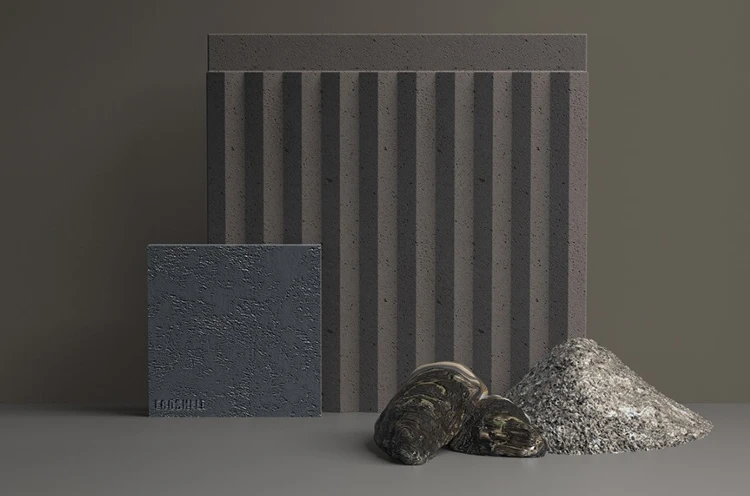As we navigate through our daily lives, the choices we make, even as seemingly innocuous as doing laundry, can have far-reaching impacts on our environment. It’s a jarring reality that 35% of the ocean’s microplastic pollution originates from a household staple: the washing machine. The clothes we wear, predominantly made from synthetic fibers, shed these tiny particles every time they’re washed. These microplastics then journey through our drainage systems, ultimately infiltrating the ocean, and disturbingly, our bodies through seafood, salt, and even crossing into fetuses via the placenta.
It’s this reason that designers Miha Vrhovec and Lenche Gjorjioski created PLANETCARE 2.0. This simple device is a microfiber filter designed to latch onto your washing machine (any machine for the most part), capturing those pesky microfibers before they ever reach the ocean.
PLANETCARE 2.0 operates with remarkable simplicity and efficiency. It attaches to the side of your washing machine, filtering all the water that’s drained after a cycle. It’s akin to how we sort our garbage, separating recyclables from general waste.
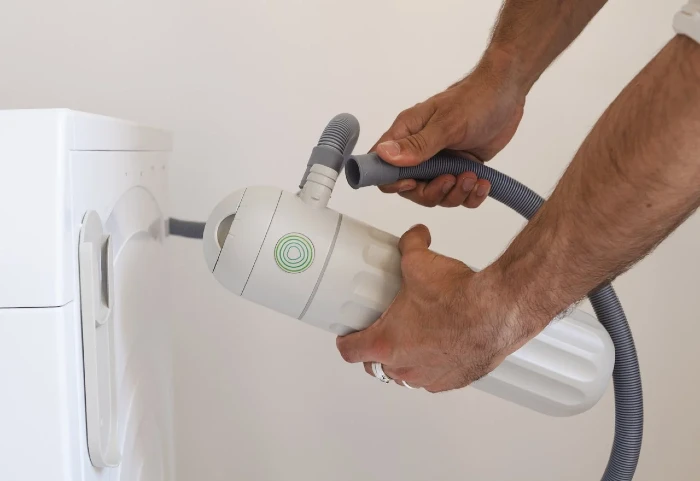
This isn’t a prototype or a pie-in-the-sky hope of a designer, the device is scientifically acclaimed, blocking 98% of fibers, proven and tested repeatedly by over 7,000 users already using the PLANETCARE 1.0 system.
Installation takes about ten minutes, and no professional help is needed. In fact, the company put together a handy short video to walk you through the process.
Its efficacy is significant; with each wash, approximately 700,000 microfibers are shed from our clothes. These fibers, whether natural like cotton and wool or synthetic like nylon and polyester, are efficiently intercepted by PLANETCARE 2.0. This interception is crucial, not only for the immediate benefit of reducing pollutants in our water but also for the broader ecological impact on our planet.
And the best part, for some of us (me included), is that you can lift out the filter and see all the microplastic plastics that you just prevented from entering our waters!
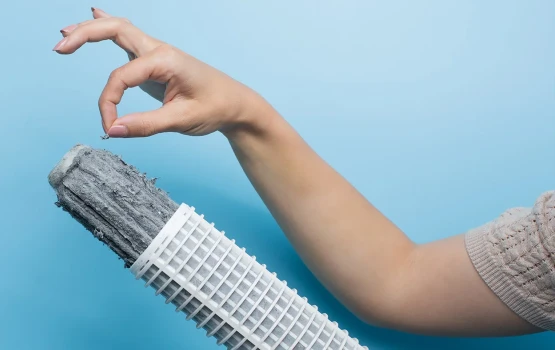
The device, priced between $65 for a small starter kit and $126 for a large kit, is affordable, but does require filter replacement purchases. It doesn’t require electricity, and signals when the filter needs replacing through a visual indicator. The used cartridges can be returned to PLANETCARE, where 95% of the material is reused, and the rest is recycled, embodying a true circular economy.
Replacement Filters Add Up Financially & In Landfills
The cost of the filter may be a barrier for some, and the ongoing need to replace and recycle cartridges requires a commitment to the cause. Moreover, while it effectively captures microfibers, it doesn’t eliminate other forms of pollution from laundry, such as chemicals from detergents. The filter also doesn’t address the root problem of synthetic fiber usage in clothing, although very little can be done without people just simply making better choices consistently.
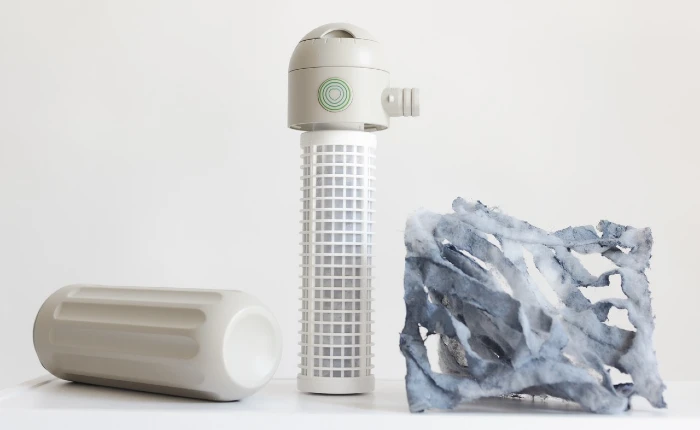
As for the filter replacement issue, and yes, it’s an issue, the designers suggest replacing the filter on a regular basis. They do have a subscription service for about $11.40 a month (includes free shipping).
Now, personally I think $136 a year spent on replacement filters is too much and that also adds a lot of extra waste to our landfills. Here’s hoping the PLANETCARE 3.0 allows for the option of paying a premium upfront for a reusable filter.
In conclusion, PLANETCARE 2.0 offers a promising solution to a pressing environmental issue.
More To Discover
- Color-Changing Lid Alerts to Spoiling Food: A Simple Solution to Save Your Groceries, Lower Food Waste
- Seed-Embedded Orange and Aloe Vera Toilet Paper Transforms Waste into Wilderness
- The Chia-Chair: Redefining Furniture as Living Ecosystems
- Australia’s Coffee-Concrete: 30% Stronger Pavement With Recycled Coffee Grounds
While it’s not a silver bullet, it represents a significant step towards mitigating the impact of our daily activities on the planet. It serves as a reminder and an opportunity for us to contribute to a larger, more sustainable change in our lifestyle and consumer choices.
Designers: Mojca Zupan & Miha Vrhovec
PlanetCare developed its first integrated microfiber filter for washing machines, its first external, add-on filter, and its first commercial filter in 2017. Co-founder, and CEO, Mojca Zupan announced it at the 2019 Plastic Health Summit (video below).
